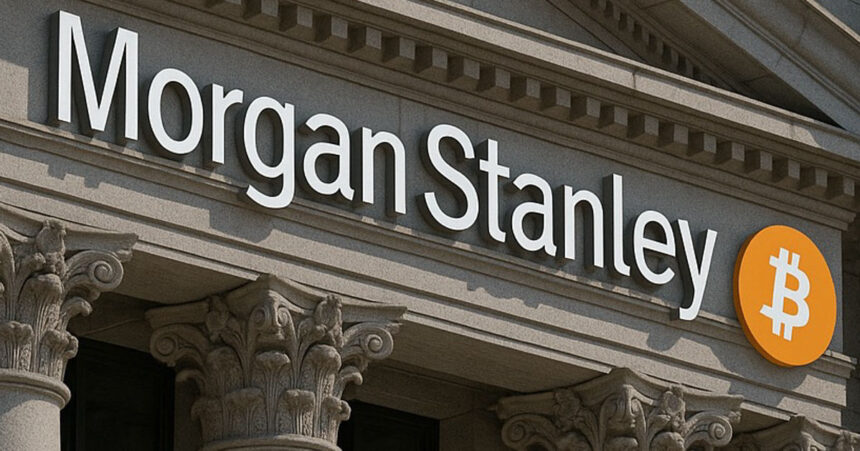Morgan Stanley is set to launch cryptocurrency trading for retail clients on its E*Trade platform, a move that signifies a notable advancement for a prominent Wall Street institution into the realms of Bitcoin and digital assets. The investment bank will collaborate with Zerohash, a cryptocurrency infrastructure provider, to facilitate essential services such as liquidity, custody, and settlement. According to reports from Bloomberg, the trading feature is anticipated to go live in the first half of 2026, initially offering popular cryptocurrencies including Bitcoin, Ethereum, and Solana.
The initiative is not merely about allowing customers to purchase Bitcoin; Morgan Stanley aims to integrate traditional and digital assets into a single account environment. Earlier in the year, the bank expressed intentions to incorporate spot Bitcoin and crypto trading into its E*Trade platform, although specific details regarding the timeline and required infrastructure had not been disclosed at that time.
Jed Finn, the head of wealth management at Morgan Stanley, described this initiative as a “transformative moment” for the financial services sector. He remarked that the ability to trade cryptocurrencies represents only the “tip of the iceberg.” The firm’s long-term strategy includes the development of a comprehensive wallet solution aimed at custody and the tokenization of various assets.
This initiative aligns with a shifting regulatory landscape during the Trump administration that has opened avenues for banks to explore involvement in cryptocurrency markets. Competitors in the industry, such as Charles Schwab, are investigating similar offerings, while Robinhood has already gained significant financial benefits from crypto trading, accumulating over $600 million last year — approximately 20% of its total revenue.
Morgan Stanley’s strategy extends beyond just providing trading access; it is also making a direct investment in Zerohash, which is reported to have recently secured $104 million at a valuation of $1 billion. This investment positions Morgan Stanley within the foundational infrastructure of the cryptocurrency market.
Furthermore, Finn highlighted the bank’s interest in tokenization, which leverages blockchain technology to create digital representations of traditional assets, like stocks and bonds. This innovation could facilitate more efficient back-office operations. For instance, tokenized cash could generate interest the moment it is transferred to a digital wallet, ensuring that funds are actively working for clients rather than remaining inactive.
Additionally, Morgan Stanley is poised to introduce a crypto-inclusive asset allocation strategy, tailored to meet various client objectives. This upcoming strategy aims to provide portfolio recommendations that suggest a small allocation to cryptocurrencies, potentially ranging from zero to a few percentage points.
For advocates of Bitcoin and cryptocurrencies, even a modest investment allocation from a major entity like Morgan Stanley is viewed as a significant advance toward broader acceptance and mainstream integration of digital assets within the financial sector.








